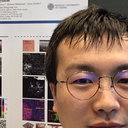2-(Pro-1-ynyl)-5-(5,6-dihydroxypenta-1,3-diynyl) thiophene induces apoptosis through reactive oxygen species-mediated JNK activation in human colon cancer SW620 cells.
Ключавыя словы
Рэферат
2-(Pro-1-ynyl)-5-(5,6-dihydroxypenta-1,3-diynyl) thiophene (PYDDT) is a naturally occurring thiophene isolated from the roots of Echinops grijsii, a Chinese herbal medicine used to treat colon cancer, breast cancer, and lung cancer. There are many reports on the clinical use of Echinops grijsii alone or in combination with other herbs to treat malignant tumors. We previously reported that the expression and activity of phase II enzymes including GSTs and NQO1 could be induced through the activation of Keap1-Nrf2 pathway by the treatment of PYDDT. In this study, we reported the anticancer effect and mechanism of PYDDT against human colon cancer SW620 cells. Our results demonstrate that treatment of SW620 cells with PYDDT leads to induction of mitochondrial-mediated apoptosis, which is characterized by the cleavage of PARP, activation of caspase 9 and caspase 3, release of cytochrome c from mitochondria, loss of mitochondrial membrane potential, down-regulation of Bcl-2, and mitochondrial translocation of Bax. The PYDDT treatment caused the production of reactive oxygen species (ROS), and the activation of JNK but not p38 mitogen-activated protein kinases and ERK1/2. Specific JNK inhibitor SP600125 prevented the PYDDT-induced down-regulation of Bcl-2, mitochondrial translocation of Bax, activation of caspase 3, and apoptosis of SW620 cells. Moreover, PYDDT-induced apoptosis as well as activation of JNK was abrogated by the pretreatment with antioxidant N-acetylcysteine. Taken together, these findings suggest that PYDDT induces apoptosis in SW620 cells through a ROS/JNK-mediated mitochondrial pathway.


